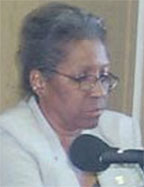-CARICOM Advisor tells Miami food conference
‘…when in 2005, Heads of Government agreed with the lead Head of Government for Agriculture (Guyana’s President Bharrat Jagdeo) that the immediate focus on agriculture should be addressing the key binding constraints to agriculture production and export, it is instructive to note that these constraints identified were almost the same as they were decades before’
 A CARICOM Advisor has said that while the Community has given regional focus to financing constraints to transforming Caribbean agriculture, these initiatives are only as good as governments are able to provide the enabling environment for attracting the requisite investment.
A CARICOM Advisor has said that while the Community has given regional focus to financing constraints to transforming Caribbean agriculture, these initiatives are only as good as governments are able to provide the enabling environment for attracting the requisite investment.
Advisor to the CARICOM Single Market and Sectoral Programmes, Desiree Field-Ridley, in addressing the 44th Annual Meeting of the Caribbean Food Crop Society (CFCS) in Miami on Monday, recalled that CARICOM had given regional focus to the financing constraint with a Regional Donor Conference in June 2007 and then an Investment Forum in June 2008, according to her address released by the CARICOM Secretariat, Turkeyen.
“But,” Advisor Field-Ridley asserted, “these initiatives will only be as good as governments are able to provide the enabling environment – physical and institutional infrastructure and incentives – for attracting investment.”
She added that already the farming community is an aging one and there are issues like land tenure for small farmers.
She pointed out too that “when in 2005, Heads of Government agreed with the lead Head of Government for Agriculture (Guyana’s President Bharrat Jagdeo) that the immediate focus on agriculture should be addressing the key binding constraints to agriculture production and export, it is instructive to note that these constraints identified were almost the same as they were decades before.”
And Field-Ridley, focusing on having Agriculture operate as a successful business, contended that the constraints must be addressed and entrepreneurial activity promoted through concerted regional action on the immediate priorities of attracting investment and financing into the sector.
She noted also the need for upgrading of facilities for intra-regional agricultural trade and transport as well as strengthened regional collaboration in agriculture research and development (R&D), particularly cooperation among national R&D bodies and by the revitalisation of existing institutions.
“Since policies must support linkages with other sectors and indeed linkages across the Region,” Field-Ridley argued, “investment ventures must be supported by the harmonisation of planning and financing policies across the Region.”
She pointed out too that the Community needs to ensure policies for public investment for rural, marketing and agricultural health and food safety infrastructure, while specifically rewarding the private sector for the use of measures which ensure food safety.
There is then the added challenge of how to organise and prioritise the supporting investments in technology, research and marketing, Field-Ridley observed, when all are needed simultaneously when resources are limited.
The CARICOM Advisor said further that the role of governments in meeting the economic challenges in this century cannot be over-emphasised.
“The Community must be committed in ensuring policy coherence and implementation of such policies and measures necessary to bring about the required transformation.”
At the regional level increasing attention is being focused on agriculture, she noted, and at the national level this also becomes evident in the support and allocation of increased funding for the agricultural sector while intensively pursuing external assistance for further development.
Field-Ridley, in conclusion, suggested that as a strategy the CSME (CARICOM Single Market and Economy) must be completed and exploited in addition to other free trade arrangements.
However, Field-Ridley noted that there are new issues of governance especially as the Region moves deeper into the CSME. While out of 12 small countries have been created a single economic space larger than any one member state where goods, services, skilled CARICOM nationals, entrepreneurs establishing businesses and capital can move without restrictions, operationally one of the challenges is to change the mindset which traditionally and emotionally is national, to seeing the entire Region as a source as well as a market. There is too the other challenge of forging a Single Economy by individual sovereign states, she added.
